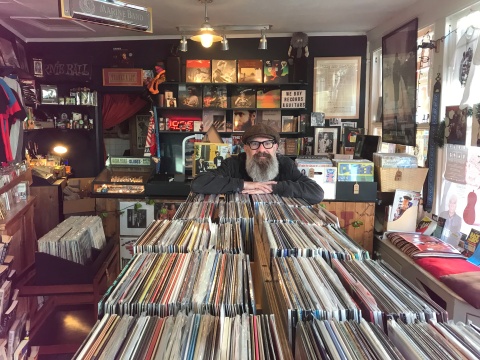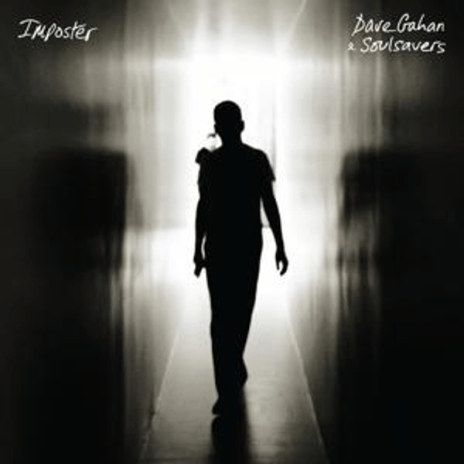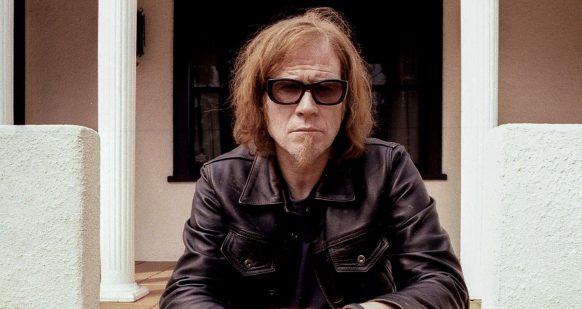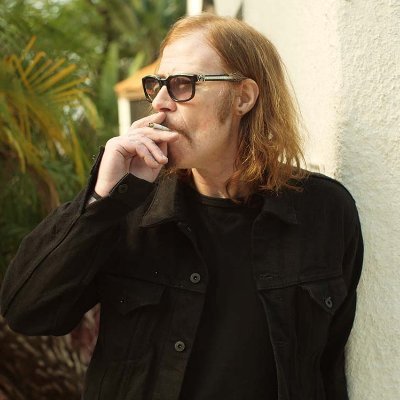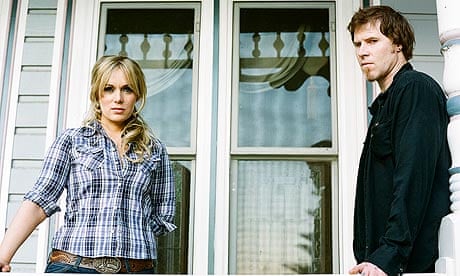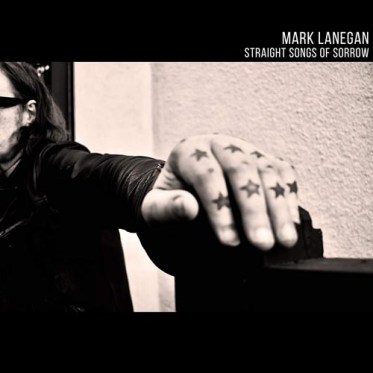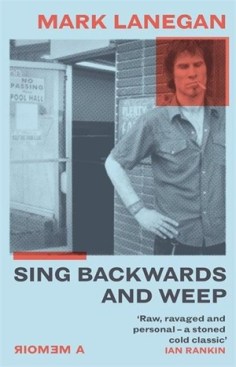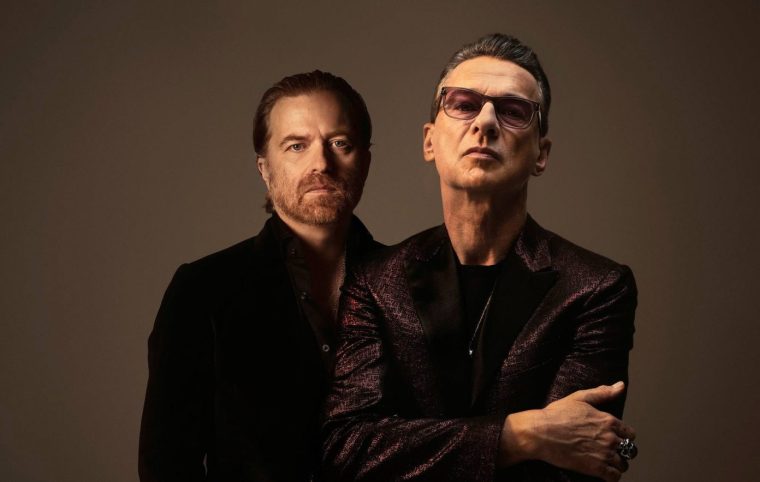
Say It With Garage Flowers has chosen our favourite album of 2021 , and, shock, horror, it’s a covers record: Imposter by Dave Gahan & Soulsavers.
Not only that, but we’ve also got an exclusive interview with Rich Machin – aka Soulsavers – on the making of the album. This isn’t fake news – Imposter is for real.
“It’s about trying to go into different worlds with stuff, rather than just recreating the original versions,” says Machin. “It was a good, fun excuse to dig through my record collection.”
For the first time since we started publishing, Say It With Garage Flowers has chosen a covers record as our favourite album of the year.
But it’s not just any old covers record – it’s one of the best we’ve ever heard: Imposter by Dave Gahan & Soulsavers.
For their third album together, the Depeche Mode frontman and his musical partner, producer / engineer/ musician, Rich Machin, decided to work their black magic on other people’s songs, rather than write their own. Both of them came up with a long list of contenders and then narrowed them down to the final 12 that make up the record.
As I said when I reviewed the album for consumer magazine, Hi-Fi+ earlier this year, it’s an eclectic selection, with Gene Clark sitting alongside Charlie Chaplin, Cat Power, Dylan, Neil Young and Mark Lanegan, whom Soulsavers first collaborated with in 2007.
There’s a pretty faithful rendition of the shadowy, infidelity-themed, country-soul classic The Dark End of the Street, albeit with some gospel stylings; a gorgeous, hymnal take on Gene Clark’s Where My Love Lies Asleep; a version of the jazz standard, Smile, as sung by Charlie Chaplin and Nat King Cole, among others; Cat Power’s Metal Heart; PJ Harvey’s The Desperate Kingdom of Love; the urgent, raw, trad blues-rock of Elmore James’s I Held My Baby Last Night, with squalling electric guitar, and a stunning and dramatic reading of Neil Young’s A Man Needs A Maid, with the rich orchestration of the original replaced by atmospheric piano and unsettling, spacey sound effects.
One of the highlights is a dynamic take on Dylan’s Not Dark Yet. Gahan and Soulsavers turn a stately twilight ballad into an altogether heavier beast. In fact, the majority of the songs on the record have been reinvented, which, of course, is the trick to making a great covers album. You have to bring something new to the party.
Writing in Hi-Fi +, I said many of the choices, which are often dark and full of pain and suffering, sound like they were written for Gahan to sing. Married three times, he is a former drug addict – he overdosed on a lethal cocktail of heroin and cocaine at the Hollywood Sunset Marquis hotel in 1996 and spent at least six minutes clinically dead. He’s a man who’s seen some harrowing sights – so much so that he doesn’t just sing these songs, he lives them and inhabits them.
The title of the album may be Imposter, but Gahan was born to perform many of these compositions. In fact, talking about the record, he says: “When I listen to other people’s voices and songs – more importantly the way they sing them and interpret the words – I feel at home. I identify with it. It comforts me more than anything else. There’s not one performer on the record who I haven’t been moved by.”
‘Many of the songs, which are dark and full of pain and suffering, sound like they were written for Gahan to sing – he lives them and inhabits them’
The album was recorded with a 10-piece band at Rick Rubin’s famous Shangri-La studio in Malibu, California.
Musicians along for the ride included guitarist James Walbourne (The Rails and The Pretenders), keyboard player Sean Read (Dexys Midnight Runners, Edwyn Collins, Manic Street Preachers) on Hammond and piano, and Pornos For Pyros and Jane’s Addiction bassist, Martyn LeNoble.
Gahan says: “I know we made something special, and I hope other people feel that and it takes them on a little kind of trip – especially people who love music and have for years.”
He’s spot on. Imposter is the real deal. To get the full story behind the making of the record, I spoke to Rich Machin of Soulsavers.
“When I walked into the studio for the first time, I knew things were going to work, because there was an ambience,” he says.
“There was a vibe in the live room – it was perfect for the way I wanted to make this record. I had a good feeling…”
Q&A
Why did you choose to make a covers album this time around?
Rich Machin: To be fair, Dave floated the idea by me – he called me up and said, ‘Would you consider doing it?’ I said, ‘Well – I’ve done covers before, but never a covers record – let me think about it and I’ll come back to you.’
I thought about it – I had a long mental checklist of tracks that I could cover. Once I had several ideas bubbling away in my brain, we talked about it and then spent a while exchanging ideas of what could work. We formed a long list and then whittled it down. It was a good, fun excuse to dig through my record collection.
It’s a really varied collection of songs. There’s some stuff that maybe you would expect to hear on there, but also some surprises, which makes it an exciting record…
RM: Out of curiosity, which are the ones you would expect to hear?
The Mark Lanegan song, Strange Religion, and the PJ Harvey track, The Desperate Kingdom of Love – I know Dave’s a fan of both artists and you’ve worked with Lanegan… To be honest, I was expecting there to be a Nick Cave cover on there, but there is a song by Roland S. Howard, from The Birthday Party – Shut Me Down…
RM: We did talk about a couple of Nick Cave ideas, but Roland S. Howard and the whole Birthday Party / Bad Seeds crew were as equally influential on us.
Shut Me Down is such a great track and it was nice to give a nod to one of the lesser-known people from that group – it came from the Cave world and it’s one of my favourite tracks on the record.
It’s great to have a Mark Lanegan track on the album, as your collaborations with him were how many people became aware of Soulsavers. It feels like you’ve come full circle by including one of his songs on the album…
RM: Mark Lanegan is one of my best friends – we speak three or four times a week. His presence is still heavily felt in what we do. At some point we’ll pick up where we left off.
The Dark End of the Street was the second single from the album. I love that song – especially the James Carr version – but your take on it is great, too… Was that one of your choices?
RM: Yeah – that was one of mine. I sat on it for a while because, to me, the James Carr version is so definitive – you don’t fuck with it!
We had a couple of other tracks in the mix that I felt the same way about, but Dave was pushing them – Lilac Wine and Always On My Mind. Willie Nelson’s version of Always On My Mind is the one, but people always think of Elvis’s…
With The Dark End of the Street, I thought, ‘fuck it – let’s try it and see where we go…’ and I was pleasantly surprised how it came out. I was more than happy to leave it on the shelf if we hadn’t done it justice.
‘I sat on The Dark End of the Street for a while because the James Carr version is so definitive – you don’t fuck with it!’
The version of Always On My Mind is brilliant. It closes the album, but you’ve resisted the urge to make it a Vegas-style showstopper – it’s stripped-down and understated, with gospel backing vocals and country guitar. The recording is very intimate – you can hear what sounds like the creaks from someone sitting on a seat…
RM: The only way for it to work was for it not to be overblown – it needed to be an intimate moment. We recorded the song live in the studio, on a Sunday night. Most people had left – there were just a couple of us left, and it had gone dark. We only had a couple of lights on – we wanted to capture the ambience of the room as much as the performance.
Most of what you can hear is the room mics. It makes you feel like you’re in the room with everybody performing – you can pick up all the creaks…
Your version of Dylan’s Not Dark Yet is superb – you’ve made it heavier, bluesier and much more dynamic than the original…
RM: It’s about trying to go into different worlds with stuff, rather than just recreating the original version. Dylan did it his way, which is the definitive version, but I could hear it differently – I played around with it. Lyrically it’s a very dark song and I was going for more of a raw, ‘60s fuzzy psych guitar feel – there’s no bass on it. I felt it really worked.
You worked with a 10-piece band on the album. Some of the arrangements have a full band sound, but there are plenty of stripped-down moments, like your dramatic version of Neil Young’s A Man Needs A Maid, which is shorn of the original’s string arrangements, but, instead, has piano and strange spacey sounds. A lot of the songs have plenty of room to breathe…
RM: It’s just as important to know when not to use people – just because it’s there, you don’t have to wave it around. You have all the tools to be able to do what you want, but the key to making something work intimately isn’t just to fill the space with everything you’ve got.
The space and the room – the silence and the quiet – on a record is just as important as the music. I was very conscious of that with a lot of the songs – it was about giving Dave’s voice room to really be the draw to what you’re listening to. The music is there to support the vocal.
‘The space and the room – the silence and the quiet – on a record is just as important as the music. I was very conscious of that with a lot of the songs’
This album was recorded with a full band at Rick Rubin’s Shangri-La studio, in Malibu. Didn’t you make the previous Dave Gahan & Soulsavers albums by working remotely?
RM: Kind of… That bit gets overstated – we did spend a lot of time together making those records. It wasn’t as disconnected as it sometimes gets portrayed. We wrote the songs for those albums remotely, but it wasn’t like this record, where we had 10 people in the studio.
When did you make the album?
RM: We recorded it before Covid, in November 2019. The first I knew of Covid was in January 2020, when I was in my hotel room, mixing the record. I was watching the news and saw something was happening in China. Our main concern at the time was the Malibu fires.
How were the recording sessions at Shangri-La?
RM: Terrible! [laughs]. I’m certainly not averse to a month of California sun in November.
It’s an incredible studio. When we were talking about places to record, Dave was very drawn to the idea of recording in Los Angeles. Over the years, I’ve done a lot of recording in L.A – I felt like I wanted us to be out of the city. I didn’t want us to have any distractions – Malibu is pretty much the city limits and it’s got a very different vibe.
‘Shangri-La is an incredible studio. It was perfect for the way I wanted to make this record. I could set everybody up, with no separation, and just let it bleed, so it sounded like a band’
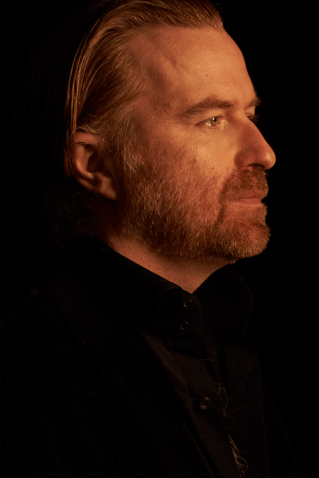
I’ve known Rick a long time, so I dropped him a text on the off chance that he wouldn’t be using the studio in November and he wasn’t, so it lined up perfectly. I floated the idea by Dave and he said yes. We got there and it was amazing.
When I walked in there for the first time, I knew things were going to work, because there was an ambience.
There was a vibe in the live room – it was perfect for the way I wanted to make this record. I had a good feeling – I could set everybody up, with no separation, and just let it bleed, so it sounded like a band.
After a few days, the history of the place gets to you. Dylan’s old tour bus is still outside – the inside of it has been turned into a recording studio. It’s a 30-second walk to Zuma Beach, so you can go there and clear your head in the morning, then stroll back, plug in and play, and make some music in the afternoon.
How did you first start working with Dave?
In 2o09, Soulsavers spent about three months on the road, opening for Depeche Mode – we became friends on that tour. When it finished, we stayed in touch and it blossomed from that.
‘It’s weird – Imposter is a covers album, but Dave said it feels more personal to him than anything he’s written himself’
Dave sounds like he’s lived some of these songs – often the lyrics are very apt for some of the experiences he’s had…
RM: It’s weird – it’s a covers album, but Dave said it feels more personal to him than anything he’s written himself. Because of the way he relates to the lyrics, it’s as if he’s telling a story.
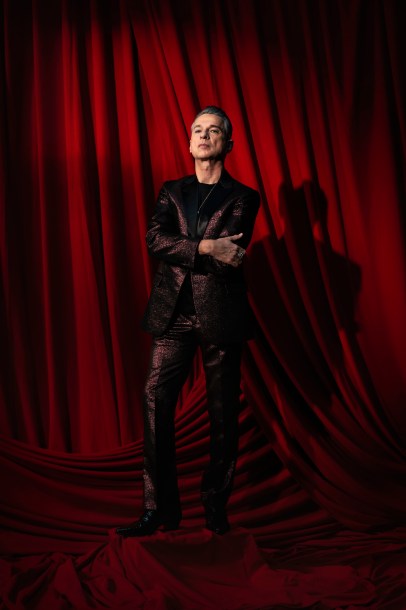
Anyone else you’d like to collaborate with?
RM: I’m working on a couple of new things for next year, with some new and old faces. I’d love to do something with Patti Smith – she’s someone that I deeply admire as a person, a writer and a musician. She’s such an interesting and deep character – she’d be top of my list.
What music – new and old – have you been enjoying recently?
RM: I’m just going to look at a stack of albums next to my record player… that’s a good starting point. I’ve got piles here – Brian Eno… Every once in a while I get really into him – that’s definitely been a regular thing. The Harmonia album [with Eno] is on the top of the pile – it’s possibly my most listened to album of the past however many years. It’s had quite a few outings recently.
I’ve also been listening to the Heliocentrics records a lot – they put out two albums last year that were just amazing.
I was really slow to hear Dylan’s Rough and Rowdy Ways. For whatever reason, when it came out I didn’t tune into it. Recently, I’ve gone, ‘Oh – this is good…’
‘I’d love to do something with Patti Smith – I deeply admire her as a person, writer and musician’
Do you stream music or buy CDs, or are you a vinyl-only guy?
RM: I’m pretty much all vinyl, but I do have a Spotify account. With new music – I like a lot of electronic stuff – rather than drop 25 quid on the vinyl, I will listen to it once or twice on Spotify to see if it’s worth the investment. I really only listen to anything on vinyl for enjoyment. I’ve got my set-up in the living room – that’s how I listen to music.
Finally, are you glad you made a covers album?
RM: Yeah – I’ve got a lot of friends who’ve made covers albums and they always say they’re the most enjoyable records to make. I’d never really figured that out for myself before, but they’re right – it was a lot of fun.
Imposter by Dave Gahan and Soulsavers is out now on Columbia Records.
https://www.instagram.com/theimposter/
